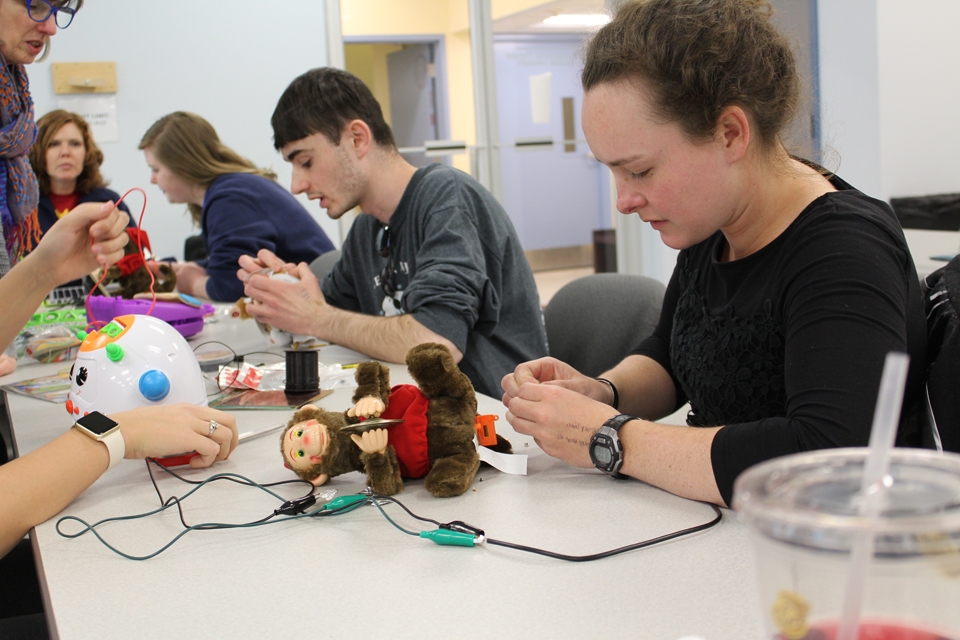
Duquesne facilities management is responsible for making sure campus is well-maintained for students.
02/22/2018
By Krystina Primack | Staff Writer
Duquesne University is doubtlessly a beautiful and well-maintained campus, and has often been described as park-like and welcoming. We are all aware that keeping this campus as safe and as clean as it is involves consistent hard work, but has anyone ever wondered what that hard work really entails? Unsurprisingly, Duquesne’s facilities management team functions as a well-oiled machine, and each member of the team fulfills their roles with dedication and attention to detail, all of which ensures every task is seen to efficiently and successfully.
Their responsibilities are divided into various areas of training and expertise, including: General mechanics, HVAC technicians, electricians, plumbers, carpenters, housekeepers and grounds workers.
To further illustrate the roles and duties of facilities management and maintenance employees, Coleman Griffin – manager of grounds, sustainability and motor pool for Duquesne University – answered several questions to demonstrate exactly what’s involved with this branch of our facilities management department. According to the Meet Our Team page of the Duquesne website, Coleman Griffin is “responsible for the direct oversight and daily planning of campus landscape operations, greening initiatives, seasonal snow removal and student sustainability activities.” As such, he gives us key insight into keeping up with life on the Bluff.
First, maintenance crews must ensure that the campus is prepared for students during each season. Of course, this task is not without its challenges, as Griffin said, “One [is] managing and planning labor activities when dealing with very unpredictable variables, such as the weather.”
This is especially true in Pittsburgh’s climate, where temperatures seem to change in the blink of an eye. To manage these factors, Griffin explained that “during weather events, we constantly monitor forecasts and plan employee scheduling to cover the campus as needed. We accomplish this by staggering employee start times and by offering extended shifts.”
In addition to weather preparations, maintenance crews work to enable students to get to where they need to go. This task can be demanding as well.
“Another challenge is mobility on campus during snow events,” Griffin said. “When we are trying to clear snow while everyone is moving around campus during their daily activities, it can be difficult and time consuming for the crew to get around.”
The hard work doesn’t end when the snow melts away and the temperatures get to be more comfortable. As we approach springtime, the duties of maintaining the campus must adapt to the changing seasons. Coleman Griffin explained that there are numerous tasks that are necessary to perform when preparing for spring. Some examples include cleaning winter debris (such as leaves and downed branches), ordering and planning for spring flower planting, mulching planting beds, pruning trees and shrubs, pothole patching, repairing snow plow and winter time tire and foot damage to lawn areas, window washing, floor cleaning and waxing, carpet cleaning, equipment maintenance, planning and preparation for Commencement and planning and preparation for summer construction projects.
All of these duties not only coincide with class time and student activities, but must also be seen to alongside daily responsibilities.
“There are everyday tasks that are completed throughout the year, as well as various tasks that are season specific.” Griffin said.
The maintenance crews are never without jobs to be done. On top of seasonal preparation, just a typical day of maintaining the campus includes policing campus and emptying outside trash and recycling containers, removing trash and recycling from all campus buildings, outside cleaning and power washing, grass cutting and other horticultural jobs. Maintenance crews must also “ensure there are no problems or issues that would need to be addressed immediately,” according to Griffin.
There are even a few things that students can do to participate in keeping campus clean and maintained.
“Our students are already really good at this, but dumping trash in cans and properly separating recycling are always worth mentioning,” Griffin explained.
In fact, taking that extra step to be mindful of what we’re throwing away and where means assisting our school’s maintenance crews, as well as helping the environment.
Griffin continued, “During snow events, we ask that students be thoughtful and careful about where they park so that snow removal equipment has access. When on foot, it’s helpful if students only walk on designated sidewalks to maintain and protect lawn and planting bed spaces.”
Duquesne University’s facilities management team plays an integral role in keeping our campus clean, beautiful, and safe, and as we have seen, doing so is no small feat. Noting that, let’s all remember to appreciate these hardworking individuals and to do our part in the process.



